News
-
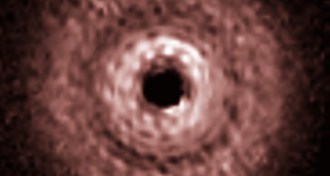 Astronomy
AstronomyHubble finds hints of a planet oddly far-flung from its star
If confirmed, the dark gap in space debris will challenge astronomers' theories.
By Andrew Grant -
 Physics
PhysicsEchoes create an interior map app
To record size and shape of a room, researchers use a speaker, five microphones and some math.
By Andrew Grant -
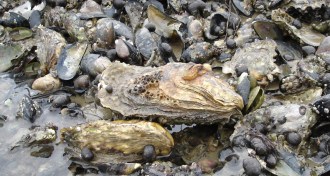 Animals
AnimalsOysters may struggle to build shells as carbon dioxide rises
Ocean acidification could hamper larvae's growth.
By Erin Wayman -
 Physics
PhysicsSimple invisibility cloaks hide toys, pets, people
Using everyday materials, two research teams conceal ordinary objects by guiding light around them.
By Andrew Grant -
 Health & Medicine
Health & MedicineDSM-5 enters the diagnostic fray
Fifth edition of the widely used psychiatric manual focuses attention on how mental disorders should be defined.
By Bruce Bower -
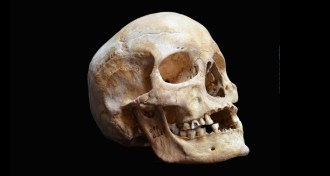 Life
LifeLeprosy bacterium changed little in last millennium
Genome alterations probably not responsible for decline in disease prevalence.
-
 Life
LifePrimitive fish could nod but not shake its head
Ancient fossils reveal surprises about early vertebrate necks, abdominal muscles.
By Erin Wayman -
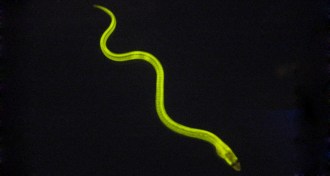 Chemistry
ChemistryAn eel’s glow could illuminate liver disease
Fluorescent protein binds to bilirubin, a compound the body must eliminate.
-
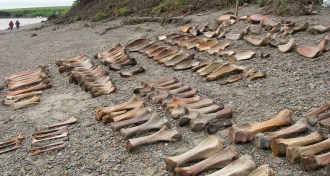 Archaeology
ArchaeologyAncient Siberians may have rarely hunted mammoths
Occasional kills by Stone Age humans could not have driven creatures to extinction, researchers say.
By Bruce Bower -
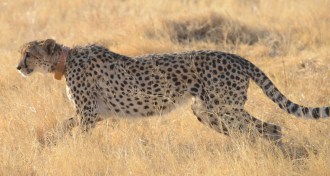 Life
LifeIn the real world, cheetahs rarely go all out
Famous for speed, the big cats actually rely on acceleration and maneuverability to capture prey.
By Susan Milius -
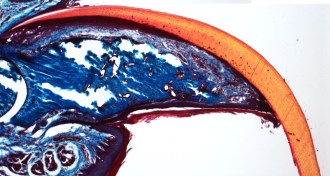 Life
LifeNail-generating tissue also regrows fingertips
Stem cells spur return of amputated digits in mice
-
 Health & Medicine
Health & MedicineHeaders linked to memory deficit in soccer players
Abnormalities in three brain regions found among those who head the ball most frequently.
By Nathan Seppa